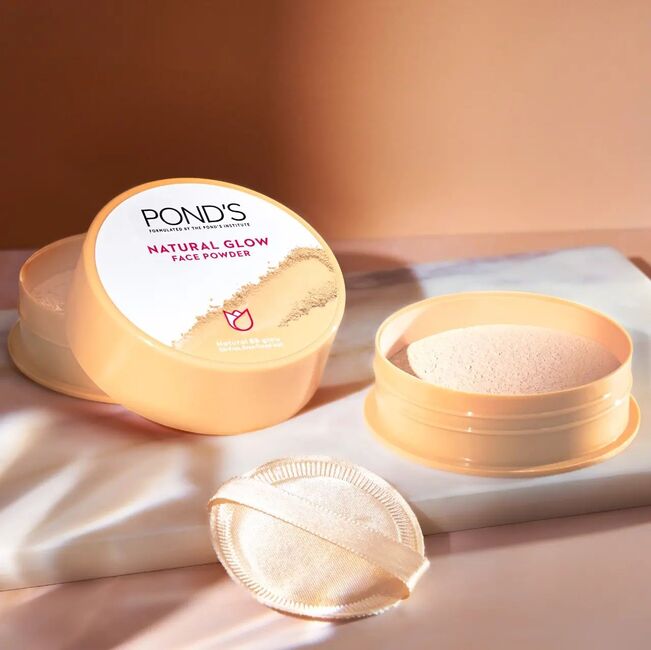Navigating the ever-evolving beauty industry often feels like travelling through a labyrinth filled with countless ingredients. Among the plethora, talc, a natural mineral, has drawn attention due to its speculated association with acne. Nevertheless, it is essential to be aware of the ingredients of any skincare or makeup item before buying it. In this blog, let's delve into the realm of talc and understand its association with skin health.
What is Talc and How Common Is it Used in Makeup?
Talc, born from the heart of our Earth, is a mineral predominantly composed of magnesium, silicon, and oxygen. Once processed, this mineral transforms into a soft, delicate powder, known for its unparalleled absorbent properties. It is very commonly used in makeup or cosmetic products.
Its presence is unmistakable in the cosmetic sphere. Foundations, setting powders, blushes, and eyeshadows frequently feature talc in their ingredient lists. Talc's unique oil-combatting ability ensures makeup remains unsmudged, keeping that midday shine at bay. With an easy-to-blend, creamy texture, talc helps users to achieve a flawless finish. Yet, talc's dominion is not confined to makeup alone. Personal care products like baby powders and specific deodorants also vouch for their efficacy.
Does Talc in Makeup Cause Acne?
Is talc bad in makeup? Does talc in makeup cause acne? Let's take a look at several facets and perspectives on this topic:
1. Talc and Pore Clogging: One of the fundamental steps in understanding acne formation is recognising the significance of unobstructed pores. Talc has the potential to clog these essential gateways on our skin. Obstructed pores trap sebum, an oil our skin naturally secretes. Over time, the buildup creates fertile ground for bacterial growth. This can lead to acne breakouts. Advocates of this viewpoint argue that by occluding pores, talc may inadvertently promote acne.
2. Talc's Drying Properties: On the flip side, talc's oil-absorbing properties, far from being problematic, could be a blessing for some. For those battling relentlessly oily skin, talc might be the oasis they have been seeking. By efficiently reducing the excess sebum, talc could theoretically deter acne formation. This presents a counter-narrative to the pore-clogging perspective.
3. Hygiene Factors: Beyond the mineral itself, our practices play a pivotal role in skin health. Consider this: if one applies talc-based products using brushes or sponges tainted with bacteria, they are effectively creating a microbial playground on their face. Such external factors can undeniably trigger acne, shifting the blame from the ingredient itself to the mode of application.
4. Individual Skin Reactions: We each possess a unique skin fingerprint, making our skincare journeys deeply personal. Talc, like any ingredient, might sit well with some and be troublesome for others. A segment of users could experience irritations, manifesting as redness, itching, or sporadic acne flare-ups. Recognising this accentuates the importance of personalised skincare.
POND'S currently has 2 variants in their face talc range. This includes - POND'S BB Glow Face Talc and POND'S Pink Glow Face Talc. You can try POND'S BB Glow Powder if you are going for the naturally glowing look. However, if you want a bright pink glow, POND'S Pink Glow Face Powder is perfect for you. Both these face talcs are effective in giving you that flawless finish and glow. POND'S talcs are mindfully formulated to avoid clogging pores and, by extension, reduce acne chances.
Frequently Asked Questions
Is talc in makeup bad for the skin?
Talc, with its deep-rooted legacy in cosmetics, has displayed both advantages and shortcomings. Its impact varies across individuals. You should always research well before you buy any products.
Does talc in makeup cause acne?
Whether talc in makeup causes acne or not is a subjective question. While talcs can be pore-clogging, this quality alone does not cause acne. Talc is also lauded for its oil-absorbing power. Other than that, your makeup and skincare habits also contribute a lot to your facial acne. So, talc in makeup alone might not cause acne. However, if used incorrectly, it surely can.
Is talc bad in makeup?
Having graced makeup formulations for generations, talc's presence is undeniably extensive. However, as with any ingredient, personal reactions can differ. If you face any issues while using talc on your face, it is best to explore talc-free alternatives or seek expert guidance.
Do makeup brands use talc in their products?
Certainly. Thanks to its unique properties, talc is used by a number of brands. However, the evolving beauty industry, responsive to consumer needs, also offers an array of talc-free options.


